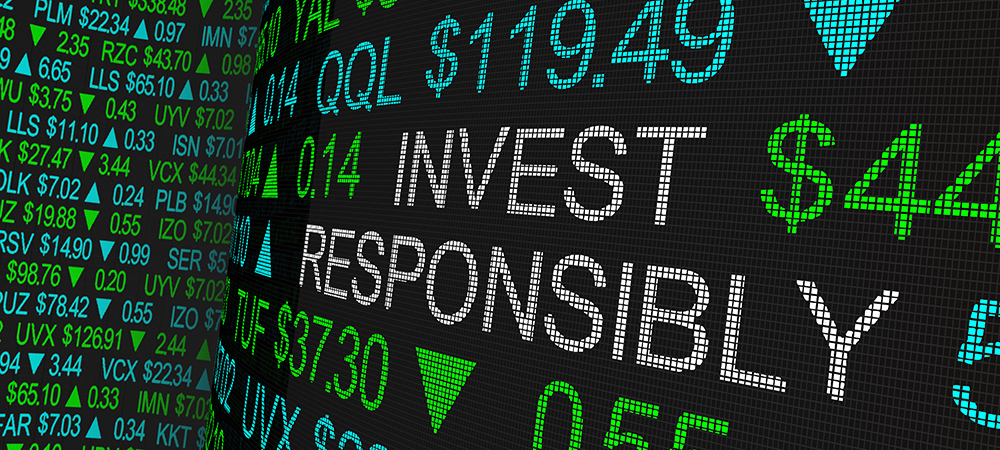Jessica Robinson, CEO of the Association for Responsible Investment in Asia and a leader in the Global Sustainable Investment Alliance, speaks about socially conscious investing, how it’s growing, why it’s a smart way to invest your money and why sustainability credentials are becoming even more important to businesses when attracting investors.

While the concept of sustainable investing has been around for quite some time, for many, it has taken a long time for the penny to drop. However, today more and more investors are seeking to invest sustainably. At the same time, more and more businesses are realising the importance of prioritising the sustainability agenda in their strategies and operations.
What is sustainable investing?
What are we talking about? Sustainable investing is an investment discipline that considers environmental, social and corporate governance (ESG) criteria to generate long-term competitive financial returns and positive societal impact. Various other terms are often used such as responsible investing, impact investing or ethical investing – while there are nuanced differences, it’s fair to say that the commonality is to achieve positive change, invariably with a social or environmental dimension.
However, sustainable investing isn’t just about avoiding investing in companies that do harm. There is a new class of investors actively seeking out companies that address daunting social and environmental challenges while also delivering financial returns. These companies fall into a wide range of industries and sectors – ranging from food to transportation, from healthcare to education – the universe for sustainable investors is extensive.
Sustainable investing is smart investing
The momentum behind sustainable investing has been slowly gathering over the last couple of years. In fact, 2022 may well be the year that sustainable investing comes of age. With the world still reeling from COVID-19 and the climate crisis becoming increasingly apparent, people are thinking about the impact of their investment decisions – on society, on the environment and on the communities in which we live. But sustainable investing is no longer seen as a nice-to-have. Sustainable investing is now seen as smart investing – to build the kind of future that we want for people and our planet.
Historically, one of the challenges we faced was the lack of data to demonstrate and support the argument that investing sustainably does not result in lower financial returns. However, the good news is that this has changed – now we have more and more concrete evidence on how sustainable funds outperform the wider market, countering claims that sustainable investment comes at the expense of performance. The same can be said for companies that understand the role that sustainability plays in their business models, and increasingly leverage this to gain competitive advantage.
It’s a growing market
As this evidence has grown so too has momentum – with more investors claiming sustainable investing is the future and fund companies launching sustainable funds at a record pace. A pivotal moment happened in early 2020, when investment heavyweight Larry Fink famously stated that Blackrock would put sustainability at the centre of its investment strategy.
Most big investors now believe sustainable investing is good risk management, leveraging the practice to help manage risk in uncertain times. The challenges of 2020 and 2021 have been somewhat of a game changer in this regard. As the pandemic swept across the world, many sustainable investors held their breath, collectively fearful of what it would mean for its impressive trajectory. But the worse did not happen – in fact, it turns out that companies that manage sustainable risks better, manage other risks better as well. The downturn associated with the pandemic has thrown water in the face of naysayers claiming that sustainable investing would result in lower returns – this is simply not true.
Be aware – the challenges of greenwashing
But it is not all plain sailing. There is increasing concern over the issue of greenwashing which is leading investors down the wrong path in some instances. Particularly for retail investors, where many are relying on certain labels such as ‘green’ or ‘SDGs’ or ‘gender diversity’ to guide them in the right direction when they make an investment decision. The problem is that sometimes these labels are not properly assigned or maybe stretching the trust. This gives the investor a false sense of comfort, not to mention the damage it does to the reputation of the sustainable investment industry.
The important thing is to be aware of ‘greenwashing’ – some companies and funds can do a good job at ‘greenwashing’. Corporate marketing and PR efforts can hide a whole host of sins, and this makes the job of sustainable investors even harder. It requires sustainable investors to do their research, check against third-party sources and undertake thorough due diligence.
Where next?
What will happen next? Thankfully it seems that the pandemic has strengthened investors’ commitment, with demand for sustainable and green products continuing to grow. As we look ahead, certain themes within the sustainable investing universe will gain more attention. Climate change will remain a top priority for many investors. Coming off the back of COP26 at the end of last year, the summit has driven new and improved climate commitments, with companies and investors following suit. Diversity has been gaining attention for a few years, but the Black Lives Matter movement has brought into sharper focus the lack of meaningful progress. And of course, the pandemic also shone a spotlight on social issues, pushing many investors to reconsider the management of social risks within their portfolios.
There are still challenges to overcome to embed sustainable investing as the ‘new norm’. Disclosure and data remain thorny issues, with concern that data is still fragmented, disclosure is inconsistent, and the lack of standardisation holds investors back. We still have some way to go on the regulatory front too – while the European Union has been a front runner with its sustainable finance agenda, there are some delays as well as ongoing debates.
Despite these challenges, we have many reasons for optimism. Perhaps one of the most exciting trends is how retail investors are waking up to the sustainable investing trend. Interestingly, research tells us that a lot of this drive is coming from women as well as younger generations. New audiences and new conversations are to be had.
Jessica Robinson is a leading expert on sustainable finance and responsible investing, and author of Financial Feminism: A Woman’s Guide to Investing for a Sustainable Future. Find out more at moxiefuture.com




